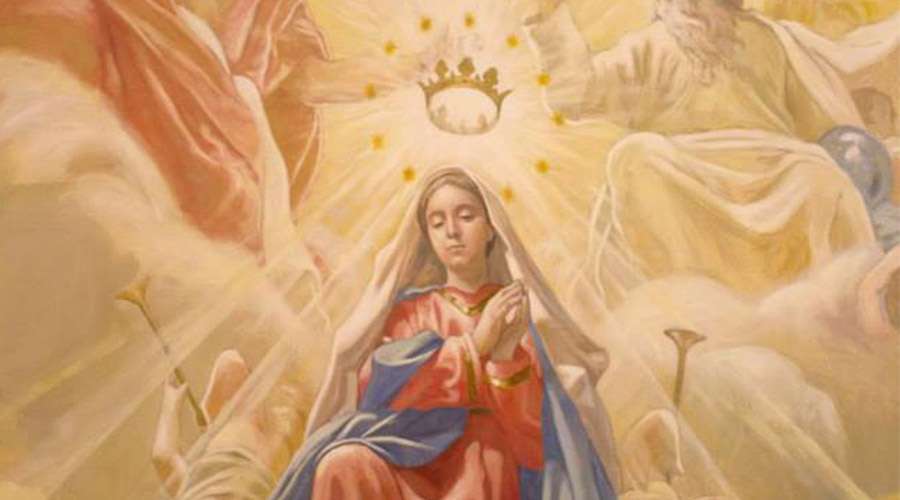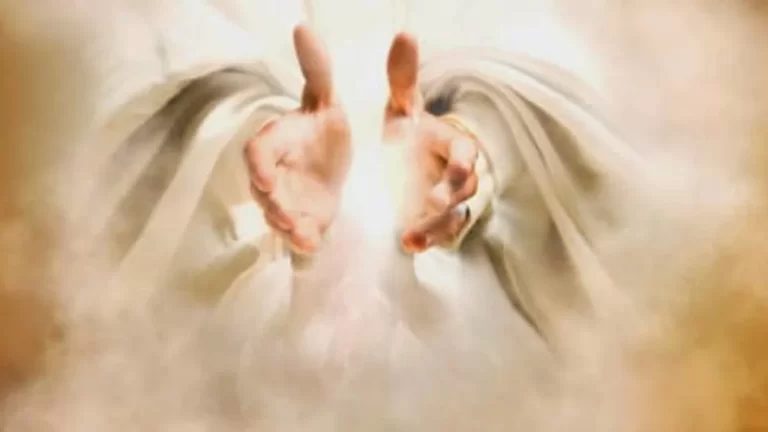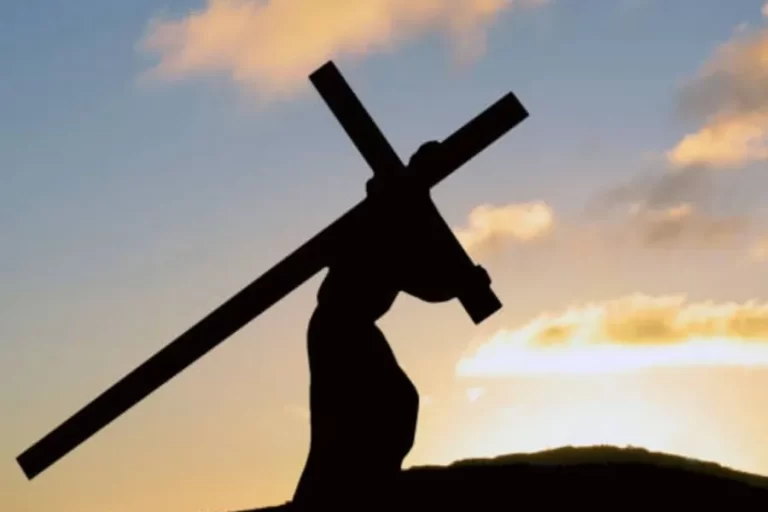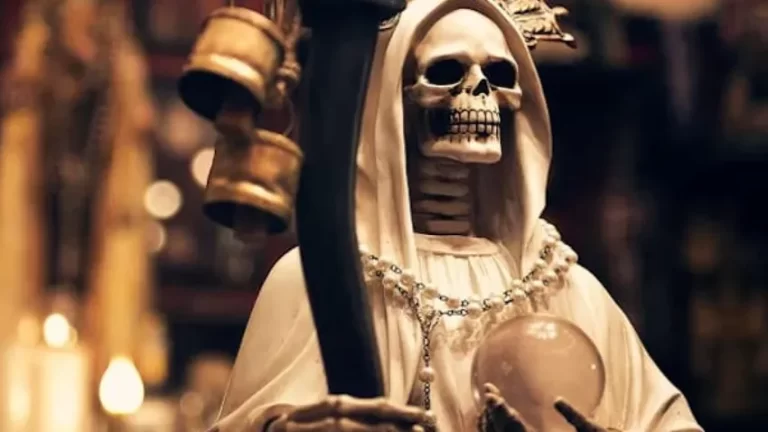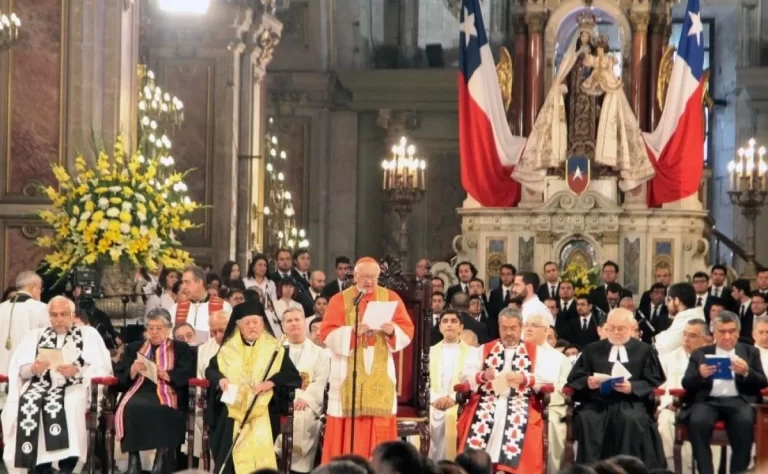What is the fiat of Mary the Virgin? Find out.
Maria’s fiat . Before getting into the matter, let us ask ourselves what does Fiat mean ? “Fiat” means “let it be done”. In Greek genoito, it constitutes the center of Mary’s response to the angel of the annunciation.
Maria’s fiat
The Fiat of Mary is a key moment in history, without a doubt, a unique and unrepeatable event, in which Mary decides to commit herself and give herself body, mind and soul to God and to his will and to be able to participate in Human Salvation.
We learn to relate to God through mom. We all learn to pray from mom’s lips. She is our mother, who teaches us to make the sign of the cross. It’s mom, who teaches us to pray to our guardian angel. And Mary, she was the one who taught Jesus to pray.
Jesus learned from his mother the most common prayer that she prayed: Fiat “May God’s will be done” and that prayer became the prayer of Jesus, and throughout his life he prayed the same: Fiat.
There is no doubt that the most beautiful moment that has occurred throughout all of humanity is when God waited for that YES from a human being so that his son, Christ the Redeemer, the king of kings, could come to this world in flesh and blood and save us all. The translation of Maria’s fiat could be: do it yourself, if you want, let’s do it together, if you want it.
The Angel told her: “Do not be afraid, Mary, because you have found grace before God. You will conceive in the womb and give birth to a son whom you will name Jesus. He will be great and will be called the Son of the Most High… According to Luke, Mary responded to the angel saying: “Behold, the servant of the Lord, let it be done to me according to your word (Lk 1,38). After her, he left her the angel.
As soon as Mary understood that God wanted to work through her and that she had been created for such a mission, she did not hesitate for a moment to give her consent. There is something that we must highlight about this and that is that at no time was her freedom of choice or her free will denied or conditioned. That is why her word and her act represent so much for the scriptures, and she did, does and will echo for all eternity.
In the face of such an act of love, devotion and dedication, the Holy Spirit poured out his grace on Mary, causing her to carry the Son of God in her womb, becoming the Mother of God, and in turn, the Mother of all men on earth. . As a result of her decision, the word became flesh and Jesus Christ, Our Lord, came to dwell in her in human nature.
The fiat of Mary was her second divine creation (the first was the creation of the world and of everything we know; Fiat. Let it be done. With this word God created the world, with all its wonders. The earth and the sky, the stars, the waters, the plants, the animals, the man … “And he saw that it was good” (cf. Gn 1).
In this second creation, God surprises us even more, because he did not want to carry out such a work alone, but through one of his angels and the grace of the Holy Spirit with great daring he requested the help of Mary, a pure human being, full of grace. and with devotion to God. To the “YES” of God I continue the “YES” of Mary. Our salvation largely depended on accepting the word and will of God.
Just as God expected to hear from the lips and pure soul of Mary ” Let it be done to me according to your word” (Lk 1, 38), he also wants to hear from our hearts and lips a generous “YES”, a “YES” when he invites us to receive him, a “YES” to follow his path, a “YES” to not question his word.
Every day we have an opportunity to give thanks and pronounce a loving, genuine and generous “Fiat” just as Mary did. Every day, we have a new opportunity to thank God for everything he gives us, just as our mother did, full of grace. Let’s learn from her, from our mother, from her infinite love, from her devotion and her delivery.
The example that Mary gave us should be a guide, an inspiration for us and should give us the certainty and sufficient understanding to understand that although sometimes it is difficult for us to accept from God, doing so fills us with peace, joy, happiness. and even relief, because when we are with God, every burden becomes lighter and every problem becomes insignificant before his omnipotence and omnipresence.
Whenever God requires of us, let us not question things so much, let us imitate Mary and that fiat that she said with so much love and disposition. That God visits us and speaks to us should be a source of joy, of feeling blessed and in grace. Let’s remember that God expects a “YES” from us, so let’s do it joyfully then. Just as he accomplished wonders in Mary, he can accomplish wonders through us.
Importance of Maria’s fiat
Travel through time has been something that mankind has always been thinking about. There are countless books and movies that show us that on these trips we have to take care of what is said or the elements that are taken to that time other than the present because otherwise history can be altered.
Bearing this in mind, have you ever thought what would have happened if Mary had not accepted being the Mother of God? God would still have acted through another girl, and even if Jesus had come in another time or through another Mother, still, he would have come to fulfill his mission, with his purpose, which was to save us by incarnating as a man. But without a doubt, it would not have been the same experience.
The Jesus that we know, the Jesus that we adore, was what he was in large part thanks to the example of the Blessed Virgin Mary, her influence, her guidance, her love, her devotion to God. Jesus had so much from Mary, that he as he looked physically, how she smiled, how she spoke, even how he prayed, how he communicated, he learned everything from her.
That is why we must be eternally grateful to her for having said that “YES”, that fiat so that God could come to earth incarnate as a man, suffer, and then die on the cross, and finally rise again. And with all this, with that divine Paschal mystery, he will save all of us who want to live eternally next to God the Father Almighty, creator of heaven and earth, enjoying his grace, his word, his infinite love and his mercy.
Mary’s fiat served so that we could follow Christ, the only and glorious true God. This reflection makes us think that God gave a specific and very special mission to the Virgin Mary, she came to this world to BE THE MOTHER OF GOD.
God has a mission for each one of us, each one of us has come to this world with a specific purpose, what is it? Many still do not know it, therefore, we must pray to the Lord and ask him to enlighten us, to allow us to understand what is this mission that has been entrusted to us? What is that mission that he has placed in our hearts? What is that mission that he laid out for our future? and finally surrender to his will in body, mind and soul.
To the extent that we know where we are going, it will be much easier for us to get there. Let us then ask God to enlighten us with that knowledge, and then, that he give us the grace to carry it out.
In order to understand what happened in Nazareth two thousand years ago, we must review and understand the reading from the Letter to the Hebrews. This text allows us to “hear” the conversation between the Father and the Son regarding the purpose of God for all eternity:
“You who did not want sacrifices or offerings, you have prepared a body for me. You did not like burnt offerings or sacrifices for sins. So I said…’God, here I am! I have come to fulfill your will’” (10:5-7 ).
The Letter to the Hebrews shows us that in obedience to the will of the Father, the Eternal Word comes among us to offer us the sacrifice that surpasses any other sacrifice offered under the old Covenant.
The divine plan is progressively revealed in the Old Testament through the words of the Prophet Isaiah: “ The Lord himself will give you a sign. And it is this: the virgin will conceive a child whom she will name Immanuel” (7:14). Immanuel means “God with us”.
Our jubilee pilgrimage has been rather a journey of the spirit, which originated in the footsteps of Abraham, “our father in faith” (Roman Canon; cf. Rom 4:11-12). And he has brought us to Nazareth, where we meet Mary, the most authentic daughter of Abraham.
It is Mary for the greatest example and who can teach us what it means to live under the faith of our father. In many ways, “the friend of God” (cf. Is 41:8) and the young woman from Nazareth (Mary) are very similar and both receive a promise and a mission from God.
Abraham would be the father of a son, from whom a great nation would descend, on the other hand, Mary, would then be the Mother of a male Child, the great Messiah, the Anointed One. “Listen!” says Gabriel, “You will bear a son…The Lord God will give his father the throne of David…and his kingdom will have no end” (Lk 1:31-33).
As we can see, both Abraham and Mary are asked for a “YES” full of faith in the face of an event that had never happened before.
Sara is the first of the barren women that appears in the Bible who manages to conceive thanks to the power and grace of God, just as Elizabeth would be the last; Gabriel speaks of Elizabeth to assure Mary: “Know this too: your cousin Elizabeth, at her advanced age, has conceived a son.” (Luke 1:36).
Both Abraham and Mary must walk through great darkness, trusting and having faith only in the one who has called them: God the father. Despite facing such a situation and wondering “How will this be?” María does not hesitate to give her consent despite the uncertainty, doubts or fears that she may have felt at that moment and understanding the immensity of the responsibility that she was being asked of her.
Mary does not question the word of God, even if she wants to ask if such a promise will be possible, she simply accepts and submits completely to the will of the father when she finally pronounces her fiat: “Behold the servant of the Lord. Let it be done to me according to your word” (Lk 1:38).
With such words, Mary shows herself as the daughter of God and the authentic daughter of Abraham, thus becoming the Mother of God and the Mother of all his servants.
Mary’s response to the Angel
When we speak of the “annunciation” and pray the first glorious mystery, we celebrate the child who is about to be born, to become flesh, but also the one who will be born in our hearts, flooding him with joy, joy, faith, love.
“Thanks to the FIAT of Christ and Mary, God was able to take on a human face.”
“Let us reflect on this wonderful mystery of faith that we contemplate every day when praying the Angelus”
These are some of the reflections of Pope Benedict XVI on the “annunciation to Mary; An interesting fact about this is that the narrative at the beginning of Saint Luke is a humble, hidden event that no one could see, only Mary witnessed it, however, it would be a decisive act for all humanity.
When the virgin pronounced her Fiat at the request of the angel, Jesus was conceived, and with him, a new era had begun. Later, this would be mentioned at Easter as a “new and eternal covenant.”
The Fiat of Mary is the Fiat of Jesus when he entered this world, as indicated in the Letter to the Hebrews in Psalm 39: “Behold, I come, O God, to do your will as in the scroll of the book it is written about me” (10,7).
The obedience of the son is the obedience of the mother and in this way, thanks to the meeting of these two fiat, God was able to assume the face of a man. That is why the Annunciation is also a Christological feast, since it celebrates a central mystery of Christ: his incarnation.
United to Jesus and witness of the Father’s love, Mary lived the martyrdom of the soul. Let us confidently invoke her intercession so that the Church, faithful to her mission, may give the whole world her courageous testimony of God’s love.
Mary’s response to that divine message from the Angel required a completely pure and authentic strength and freedom. Opening herself to the greatest gift you can imagine, but also to the greatest pain and the greatest and heaviest cross that has ever been placed on a mother’s heart, this she accepted without question.
Accepting the Will of God not only brought with it the responsibility of assuming and joyfully accepting giving birth to the Son of God, but also carrying the greatest and deepest pain in her soul filled with the most exquisite love.
Accepting all this represented an extremely act, and in fact, despite her intelligence and knowledge of the sacred word, the Virgin Mary needed all the courage and strength of her will that her human capacity allowed her, infused virtues and the gifts of the Holy Spirit to then be able to say – with total and absolute consciousness and freedom – his fiat before such a divine purpose.
Simple, graceful, with a pure soul and a noble and loving heart, María makes possible what was apparently humanly impossible: Giving birth to a child, losing her purity, without having any contact with a man. This immense wealth and awareness is what makes that resounding “YES” possible. Placing himself then at the full and complete disposal of the father and his will.
God has given us all free will, as well as the grace and ability to respond affirmatively to his call and our divine vocation. Without such grace, it would be impossible for us to say yes, but neither are we forced to say or do so.
The freedom to decide whether or not we want to accept the call of the father is personal, only ours. Saying “NO” is not an offense, because the divine vocation is not a mandate, but rather an invitation: “If you want, come and follow me.”
What defines our human freedom is mainly self-determination, that is, the ability we have to assume our own actions, aimed at the good that our nature supposes.
When we are born and baptized we are free from all sin, however, as time progresses and we go through hard times, pain, disappointments, experiences, sometimes we allow those not so good experiences, negative thoughts and feelings to corrupt us, and this is what then distances us from the path of God and his promise of eternal life and the Kingdom of heaven on earth.
The Virgin Mary shows us how with love she did not choose what she believed was good for her, but those good things that God proposed in her life. Certainly, she could have refused without this representing a selfish or offensive act to God, but she knew perfectly well what her life mission was.
“The Holy Fathers rightly think that Mary was not a purely passive instrument in the hands of God, but that she cooperated in the salvation of men with free faith and obedience.”
Before the will of God, another response was unthinkable for Mary other than accepting it, and proclaiming herself “slave of the Lord”, she joyfully and lovingly accepts her mission, as a sign of her immense faith in the Word of God and its effects: humility and obedience.
In ancient times, in the time of slaves, it is where this expression must be valued. The slaves had no will of their own or aspirations other than those of their master, likewise, Mary, before God, had no other will than to accept such a gift and request from Almighty God.
Mary and her redemption before the will of God
A young and pure Mary expresses her blessed “fiat”, gives her unconditional yes and joyfully accepts her mission, expressing: “Behold, I am the handmaid of the Lord. Let it be done to me according to your word” (Lk 1,38).
With these words the Virgin affirms her solemn vocation, giving way to one of the greatest miracles, an event beyond the extraordinary and that at the same time seems contradictory.
A virgin who gives birth and becomes a mother? God made man? Despite the divinity, glory and grace of him. God comes to earth then to become the Only Begotten Son of God, and in turn, God is the son of Mary of Nazareth:
And the Word became flesh,
and dwelt among us
and we saw his glory,
glory as of the Only Begotten, of the Father,
full of grace and truth (Jn 1,14).
Mary does not doubt for a moment the mission that has been entrusted to her. Neither does she ask for a sign as Zacharias did. Despite the fact that she feels a little confused by the fact of becoming her mother despite her purity and virginity, she happily accepts, feeling the joy of God’s grace and that he has requested to work on her through her.
Once she managed to understand her responsibility, her joy could not be expressed even with the most exciting words, offering her total and absolute service to the will and plan of God, calling and proclaiming herself “slave of the Lord”, therefore, she remains under her willingness for God to work through her as he wishes.
“And as his slave, he gives himself completely and thus the power of the Most High will cover you with his shadow” (Lk 1, 35). The Virgin Mary then becomes the new temple of God and is covered with the shadow of fertilization by the Holy Spirit.
Faced with such an act, Mary makes the verb of flesh, her word, her truth, which exists since the beginning of time, lives and will live for all eternity and humbly decides to come and illuminate the world with her love and desire to obedience to God. “The true light existed, which, with its coming into this world, enlightens every man” (Jn 1,9).
This is how Mary, daughter of Adam, accepts his message and divine mandate, becomes the Mother of Jesus and wholeheartedly embraces the will of God, free from any sin, consecrating herself as a slave of the Lord, a slave of life and work. of his Son, serving the mystery of redemption with and under him, with the grace and blessing of Almighty God.
It is not surprising then that the Holy Fathers of the young Mary thought that she was not an instrument welcomed into the hands of God, but also cooperated and interceded in the salvation of all men of faith, obedience and fear of God.
As Saint Irenaeus says: “By obeying, she became the cause of salvation for herself and for all mankind”, therefore, not a few ancient Fathers pleasantly affirm that: “The knot of Eve’s disobedience was untied by the obedience of Maria; that what was bound by the virgin Eve through her unbelief, was loosed by the virgin Mary through her faith.”
And comparing her to Eve, they call Mary “Mother of the living”, affirming then and with much greater frequency that “death came through Eve, life through Mary” (LG 56).
A young and virgin woman will give birth to a son, Emmanuel (Is 7, 14; Mq 5, 2; Mt 1,23).
In Mary, after the long wait of time, that promise is fulfilled in its culmination: from her flesh the Only Begotten of the Father is made flesh and dwelt among us (Jn 1,14).
Lumen Gentium specifies: “This union of the Mother with the Son in the work of salvation is manifested from the moment of Christ’s virginal conception until his death. In the first place, when Mary, setting out with haste to visit Elizabeth, was proclaimed blessed by the latter because of her faith in the promised salvation, while the Forerunner leaped for joy in his mother’s womb” (cf. Lk 1,41-4s)
“And at the birth, when the Mother of God, full of joy, presented her only-begotten Son to the shepherds and the Magi, who, far from undermining, consecrated her virginal integrity. And when he had made his own offering for the poor, he presented it to the Lord in the temple and heard Simeon prophesy that the Son would be a sign of contradiction and that a sword would pierce the soul of the Mother, so that the thoughts of many hearts might be revealed (cf. Lk 2,34-3s).
Mary, being the Mother of the Son of God, had a more intimate participation in the redemptive work of her only begotten son, as the Holy Scriptures point out: “ But when the fullness of time came, God sent his Son, born of a woman, born under the law.” Galatians 4:4
We know that God as a divine and omnipotent being could have come to this world of his own free will, without the need to incarnate in the womb of Mary, however, he decided to be born as a child, to depend and learn from the example of a Mother, so such an act represents proof of their co-redemption and participation in it by giving birth to the Redeemer and Savior of all men in the world.
The blood of Christ has great power, so much so that it redeemed us, absolved and purified us of all our sins. It is important to note that he inherited his blood and body from his mother Mary, and in fact, everyone who is born of a woman has the blood and body of Christ because we are made in his image and likeness. Mary, by agreeing to give him her blood and body, participated actively and intimately in the redemption of all men.
God’s choice of Mary as Mother of God was not by chance, nor was it random, it had a deliberate intention and was also accepted by her son. When Mary accepted her will, and led a pure life and was free from all sin, being she, mother of the verb made man, this at birth, would maintain such chastity and would be free of granted sin, also enjoying the grace of God.
It fell to Mary not only to do the opposite of what Luzbel had done, but much more: to offer herself entirely to God so that he could act through her, and could finally save his creatures.
God is in all his creatures by essence (being), presence (understanding) and power (willing), however, he wanted to come to this world as our property, enjoy our nature, and with our consent guide us through his word and inviting us to follow his path of humility, dedication, purity of spirit and become his servants.
There will be no greater privilege that Mary enjoyed, after becoming the Mother of God, Mother of all men and all the creatures that inhabit it, she did not keep it for herself, on the contrary, she shared it, showing it to shepherds and magicians , while he still had him at home, and later, he would motivate him to manifest himself publicly as “The Messiah” at the wedding in Cana.
Even when everyone abandoned her Son on the cross, she was the only one who gave him up and gave herself with him to the Father. Although once dead no one could imagine that he would rise again, she did believe and patiently waited for his resurrection, because she never doubted or questioned the word of God.
The mercy of accepting the mission that God had entrusted to her carried with it a very difficult part: not putting any obstacles to the death of her Son, and moreover, she had to “die” voluntarily with him, that is, at the foot of the cross.
If God asked Abraham to sacrifice his son as proof of his faith, this cannot even be compared to the sacrifice that was asked of Mary, of letting her Only Begotten Son die in obedience to the Father, who gave him as a token of love. for us.
Mary’s love is nothing more than an imitation of the Father’s love for us. Both give us and sacrifice the same Son, who also belongs to both. From God, by his divine nature. And from Mary, because of her human nature.
The greatness that God granted to man when creating him is exalted in Mary, because through her God has wanted to give us his Son. What grace and blessing possesses human motherhood, when the same divine Word has wanted to be the son of a woman.
It is convenient then to pay special attention to the importance that God gave to motherhood when choosing Mary as the first step in his saving plans.
Motherhood is the natural (and human) way by which we incarnate in this world and are welcomed as Children of God. That is why keeping us obedient and following her path is our mother’s job. They are the ones who teach us to feel so much devotion and love for God.
The incarnation separates, so God then offers us a divinely perfect way of living sexuality: celibacy for the kingdom of heaven. Mary, inspired by the Holy Spirit, had adopted this lifestyle, which motivated all tradition (oral and written) to see the Church as the “ Bride of Christ” and the Kingdom of Heaven as the only “male”.
This only man would be Christ: He whose love until death transmits to us and inspires us to enjoy an intimate love of God, for which we must then freely imitate Mary.
Mary, full of grace, received gifts and graces that no one else received, despite this, she communicated them to the entire creation at all times, especially when she gave her Son on the cross. Therefore, mercy is achieved when we communicate our gifts without reservation.
We can say then that Mary is included in God’s plan of salvation to be at the side of her Son, giving them the power, understanding and wisdom to triumph over any temptation offered by the evil one.
It would be prudent to ask ourselves then, how can she be a daughter of Adam and not be under the power of the evil one and suffer his snares without success? How can she, this she, be a vital part of God’s redemptive plan without being a redeemer herself? This is the mystery of Mary within the divine plan of redemption.
Mary’s consent
We might think that Mary’s decision was a simple act of faith. Becoming the mother of the Messiah: wouldn’t that be the dream of every young Hebrew woman? But we were hugely wrong. That act of faith is, has been and will always be the most difficult in history. How can Maria explain what has happened to her? Who will believe her when she says that the child she has given birth to is the work of the Holy Spirit? This had never happened before her, nor will it ever happen again at any time.
Mary knew the scriptures of the Mosaic law perfectly: “A young woman who was not found in a state of virginity on the day of the wedding had to be brought to the door of her father’s house and stoned (Cf. Dt 22,20ss).
Mary’s faith cannot be summed up only in the act of giving her consent to a certain number of truths, but she entrusted her whole life to God, to his grace, goodness and love. She fervently believed in this, in her plan and therefore, at the moment of her call, she pronounced her fiat with her eyes closed, fully believing that “nothing is impossible for God.”
To put it once and for all, let it be done for me in that way in which it has never been done for anyone before me and for no one after me. “In many and various ways God once spoke to our fathers through his prophets.”
Mary’s role in relation to the Church is inseparable from her union with Christ, it derives directly from it. “This union of the Mother with the Son in the work of salvation is manifested from the moment of Christ’s virginal conception until his death” ( LG 57). It manifests itself particularly in the hour of her passion:
“The Blessed Virgin advanced on the pilgrimage of faith and faithfully maintained union with her Son until the cross. There, by the will of God, she stood, suffered intensely with her Son and joined her sacrifice with the heart of a mother who, full of love, lovingly gave her consent to the immolation of her Son as a victim who She had spawned.
Finally, Jesus Christ, dying on the cross, gave her as mother to the disciple with these words: Woman, here is your son ( Jn 19, 26-27)” (LG 58); After the Ascension of her Son, Mary “was present at the beginning of the Church with her prayers” (LG 69).
Gathered with the apostles and some women, “Mary asked with her prayers for the gift of the Spirit, who at the Annunciation had covered her with his shadow” (LG 59).
“Finally, the Immaculate Virgin, preserved immune from all stain of original sin, having finished the course of her life on earth, was assumed body and soul into the glory of heaven and exalted by God as Queen of the universe, to be conformed more fully to his Son, Lord of lords and victor over sin and death” (LG 59; cf. Pius XII, Munificentissimus Deus ).
After having talked about the Church, its origin, mission and destiny, there is no better conclusion than turning our gaze to Mary and being able to contemplate in her what the Church is in her mystery, in her “pilgrimage of faith”, and what which will be at the end of his march, where he awaits him, “to the glory of the most holy and indivisible Trinity”, “in communion with all the saints” (LG 69).
The title of Co-redemptrix that has been assigned to our Mother, the Virgin Mary, since the fifteenth century (and that also appears during the pontificate of Pius X and in some Church documents) should not be understood in the sense of equating the action of Mary with the saving work of Christ, who is the only redeemer of humanity (1Tim 2:5).
The Virgin herself needed redemption and was redeemed by Christ. The cooperation of the Virgin Mary in the redemption is indirect and mediate, since she freely and voluntarily offered her entire life to the service of God, both at the annunciation and later, causing her to surrender and reveal herself as “The Messiah”. then finally, suffer the greatest of a mother’s pains, and “die” with him at the foot of the cross.

Hello! Let me enthusiastically introduce myself as a dedicated blogger fueled by an intense passion for meticulously crafting insightful and well-researched blogs. My mission revolves around providing you, dear readers, with a veritable treasure trove of invaluable information.

